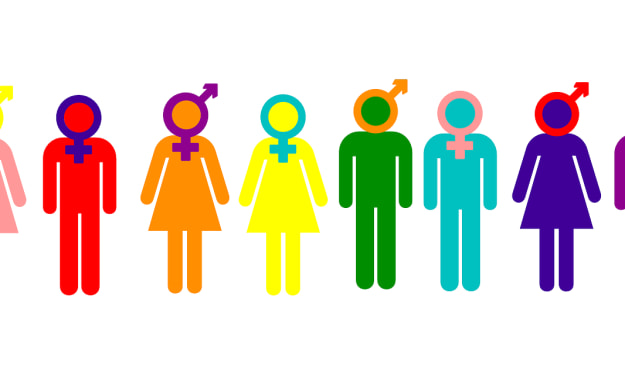Peer Pressure and Teenagers: How it Impacts Decision-making in Sexual and Reproductive Health
Peer pressure refers to the influence that individuals of the same age group or social circle exert on one another, leading to behavior change or conformity to societal norms. It can manifest in various forms, such as direct pressure, subtle persuasion, or the fear of being excluded or judged.

Why is it important to address the point of peer pressure:
Impact on decision-making: During adolescence, teenagers are particularly susceptible to peer influence due to their desire for acceptance and fitting in. Peer pressure can significantly impact their decisions related to sexual activity, contraception, and reproductive choices.
- Risky behaviors: Peer pressure can lead teenagers to engage in risky sexual behaviors, such as having unprotected sex, experimenting with drugs or alcohol, or engaging in sexual activities before they are emotionally ready or have adequate knowledge.
- Negative consequences: Giving in to peer pressure without considering their own values, boundaries, or potential risks can have serious consequences on teenagers' sexual and reproductive health. It can lead to unintended pregnancies, sexually transmitted infections (STIs), emotional distress, or regret.
- Empowering informed decision-making: Addressing peer pressure empowers teenagers to make informed decisions based on their own values, beliefs, and knowledge. It encourages them to critically evaluate the potential consequences of their actions and consider their own well-being and future goals.
- Healthy relationships: By addressing peer pressure, teenagers can learn to establish healthy boundaries, communicate their desires and limits, and engage in consensual and respectful relationships. They can develop the skills to resist negative peer influence and prioritize their own emotional and physical well-being.
- Building resilience: Addressing peer pressure helps teenagers build resilience and assertiveness. They learn to say no when they are not comfortable with a situation and make choices that align with their own values and goals, even if it means going against the crowd.
- Strengthening self-esteem: Resisting negative peer pressure and making decisions that reflect their own values and beliefs can boost teenagers' self-esteem and self-confidence. It helps them develop a strong sense of identity and autonomy.
Promoting open communication: By addressing peer pressure, we create a safe space for teenagers to discuss their concerns, ask questions, and seek guidance. Open communication with trusted adults, such as parents, teachers, or healthcare providers, allows them to access accurate information, support, and guidance regarding their sexual and reproductive health.
Understanding Peer Pressure
A. Types of peer pressure:
• Positive peer pressure: Positive peer pressure involves friends or peers encouraging and influencing each other toward healthy and constructive behaviors. Examples include motivating each other to engage in physical activity, supporting academic goals, or advocating for responsible decision-making.
• Negative peer pressure: Negative peer pressure refers to situations where peers influence others to engage in harmful or risky behaviors. This can include pressuring someone to experiment with drugs or alcohol, engage in unsafe sexual activities, or participate in activities that go against their values or well-being.
B. Influence of peers on teenagers' decision-making:
• Acceptance and belonging: Teenagers have a strong desire to fit in and be accepted by their peers. This needs for social acceptance can influence their decision-making, as they may fear rejection or be left out if they don't conform to peer expectations.
• Normative influence: Teenagers often observe and adopt the behaviors and attitudes of their peers as a way to conform to social norms. They may adopt certain beliefs or engage in behaviors because they perceive them to be popular or accepted within their peer group.
• Emotional influence: The emotional connection and bond with peers can influence decision-making. Teenagers may prioritize maintaining positive relationships and avoiding conflict, leading them to make choices based on their emotional connection to their peers rather than considering the potential consequences.
• Lack of experience and knowledge: Adolescents are still developing their decision-making skills and may rely on their peers for guidance and information. This can make them more susceptible to peer pressure, as they may not have the necessary knowledge or confidence to make independent choices.
C. Factors that contribute to susceptibility to peer pressure:
• Self-esteem and self-confidence: Teenagers with lower self-esteem or those who lack confidence in their own judgment may be more susceptible to peer pressure. They may seek validation and acceptance from their peers, making it harder for them to resist negative influences.
• The desire for autonomy: Adolescents are exploring their independence and may desire to assert their autonomy. However, this desire for autonomy can also make them more vulnerable to peer pressure, as they may feel compelled to conform to peer expectations to establish their identity.
• Need for social validation: Teenagers often seek social validation and may be influenced by the approval or disapproval of their peers. They may be more likely to succumb to negative peer pressure if they believe it will enhance their social status or popularity.
• Lack of assertiveness and decision-making skills: Teens who struggle with assertiveness and decision-making skills may find it challenging to resist peer pressure. They may have difficulty saying no or asserting their own boundaries and preferences.
Impact of Peer Pressure on Sexual and Reproductive Health
A. Risky behaviors influenced by peer pressure:
• Early sexual initiation: Teens may feel pressured to engage in sexual activity before they are emotionally ready or have the necessary knowledge about safe sex practices.
• Unprotected sex: Peer pressure can lead teenagers to engage in unprotected sex, either due to a desire to fit in or a belief that their peers engage in similar behaviors without consequences.
• Substance abuse and sexual activity: In some cases, peer pressure can involve combining substance abuse with sexual activity, increasing the risk of engaging in unsafe sexual behaviors.
B. Emotional and psychological consequences of succumbing to negative peer pressure:
• Regret and guilt: Teens may experience regret or guilt after engaging in behaviors that go against their own values or beliefs due to peer pressure.
• Emotional distress and self-esteem issues: Engaging in risky behaviors to please peers can lead to emotional distress and a negative impact on self-esteem, as teenagers may feel like they have compromised their own well-being or betrayed their own values.
• Anxiety and stress: Teenagers may experience anxiety and stress related to the fear of being judged, rejected, or excluded by their peers if they don't conform to expectations.
C. Relationship between peer pressure and contraceptive use or access to reproductive healthcare:
• Limited knowledge about contraception: If peers discourage discussions about contraception or discourage its use, teenagers may lack accurate information about contraception methods, which can lead to unintended pregnancies or increased risk of sexually transmitted infections (STIs).
• Reluctance to seek reproductive healthcare: Fear of judgment or stigma from peers can discourage teenagers from seeking reproductive healthcare services, including accessing contraception or STI testing and treatment.
• Inconsistent or ineffective use of contraception: When peer pressure influences contraceptive decisions, teenagers may be more likely to engage in inconsistent or ineffective use of contraception, increasing the risk of unintended pregnancies or STI transmission.
Addressing peer pressure in teenagers' sexual and reproductive health involves providing accurate information, promoting healthy communication, creating a supportive environment, and empowering informed decision-making. This helps teenagers make responsible choices for their well-being.
Recognizing and Managing Peer Pressure
A. Developing critical thinking skills to resist negative peer pressure:
Teenagers can learn to question and evaluate the influence of peers, media, and societal norms. Developing critical thinking skills helps them make independent choices based on their values and personal well-being.
B. Building assertiveness and communication skills to make informed decisions:
By learning assertiveness and effective communication, teenagers can express their boundaries and values confidently. This empowers them to make informed decisions about their sexual and reproductive health, even in the face of peer pressure.
C. Identifying supportive peer networks and positive role models:
Encouraging teenagers to build relationships with supportive peers who share their values can provide a strong support system. Positive role models can inspire and guide them in making responsible choices.
These strategies help teenagers navigate peer pressure and make choices aligned with their own well-being and values.
Parental and educational support plays a crucial role in helping teenagers navigate peer pressure effectively. Here are some key points to consider:
A. Role of parents in helping teenagers navigate peer pressure: Parents can establish open and supportive communication channels with their teenagers. By actively listening, providing guidance, and setting clear expectations, parents can help teenagers develop resilience and make informed decisions. They can also educate their children about healthy relationships, consent, and the importance of self-respect.
B. Creating safe spaces for open discussions and addressing peer pressure: educational institutions can play a significant role in creating safe spaces for teenagers to discuss peer pressure and related topics openly. This can be achieved through comprehensive sexual and reproductive health education programs that provide accurate information, promote critical thinking, and encourage discussions. It is important to foster an inclusive and non-judgmental environment where teenagers feel comfortable seeking guidance and support.
By involving parents and providing educational support, teenagers can receive consistent guidance and gain the knowledge and skills necessary to navigate peer pressure effectively.
Strategies for resisting peer pressure can empower teenagers to make choices aligned with their values and well-being. Here's an explanation of these strategies in simple words:
A. Setting personal boundaries and goals: Teens can identify their personal values, boundaries, and goals for their sexual and reproductive health. This involves understanding what they are comfortable with and what they want to achieve in their relationships and sexual experiences. By having clear boundaries and goals, they can make decisions that align with their own values and resist pressures that may contradict them.
B. Using refusal skills and assertive communication: Teens can learn and practice refusal skills to confidently say "no" when faced with peer pressure. This involves using assertive communication to express their boundaries, preferences, and concerns. By effectively communicating their decisions and standing up for themselves, teenagers can assert their autonomy and resist unwanted influence.
C. Seeking support from trusted adults and professionals: It's important for teenagers to have a support network they can turn to for guidance and advice. This can include trusted adults, such as parents, guardians, teachers, or counselors, who can provide support, listen without judgment, and offer guidance based on their knowledge and experience. Professional resources, such as healthcare providers or sexual health educators, can also provide accurate information and support tailored to teenagers' specific needs.
By utilizing these strategies, teenagers can develop the confidence and skills necessary to resist negative peer pressure and make choices that promote their sexual and reproductive health and well-being.
for mor info visit https://tooshytoask.org/
In conclusion,
addressing peer pressure in the context of teenagers' sexual and reproductive health is crucial. By equipping them with strategies to resist negative influences, such as setting personal boundaries, developing assertiveness skills, and seeking support, we can empower teenagers to make informed decisions. Parental involvement and creating safe spaces for open discussions further contribute to their well-being. Together, these efforts promote responsible choices and prioritize the sexual and reproductive health of teenagers.





Comments
There are no comments for this story
Be the first to respond and start the conversation.